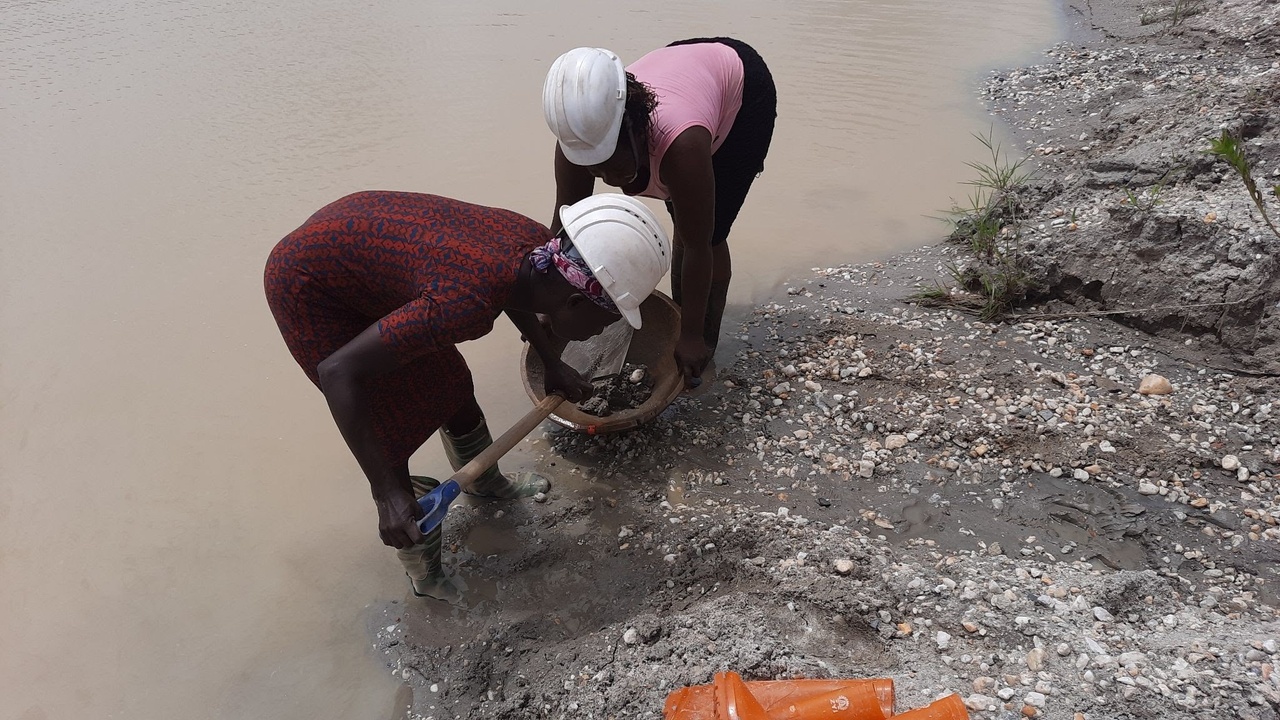
Living Room Session: Current ASGM Initiatives, pt. 2
Dec 07, 2021A part two to our October Living Room session, the November session was a further look at two initiatives in the sector of artisanal and small-scale gold mining (ASGM). This was a great opportunity to see innovative approaches to tackling some issues in the space from both a wider-reaching, NGO perspective as well as an individual jeweler’s perspective.
We welcomed Carla Neefs, Corporate Partnerships Manager at Solidaridad Europe and Yaw Britwum Opoku, the Program Manager for Gold at Solidaridad West Africa, who shared their work in Ghana helping mining sites improve practices, meet the CRAFT Code standard for responsible ASGM, and integrate ASM gold into the formal (international) market. We also heard from Andrea Jose Castro, Founder and Creative Director of Casa Collab, a jewelry design studio in Lima, Peru. Andrea described her journey to collaborating with miners in Peru to build and sustain the value chain and create opportunities for other jewelers to source their mercury-free gold.
Ghana has a very long history of gold mining, going back to the fourth century. Two key events have taken place in the 20th century, however: the legalization of large scale mining and banning of small scale mining in 1933 and later on, new regulations being put in place in 1989 that allowed small scale mining again. Since that time, the ASGM sector has grown from comprising 2.2% of all gold mining in Ghana, to now comprising ⅓ of the 4.5 million ounces of gold exported from Ghana every year. About 1 million people in the country are directly employed in ASGM and with an average household size of 4.5, we can deduce that over 4 million people benefit from this sector economically.
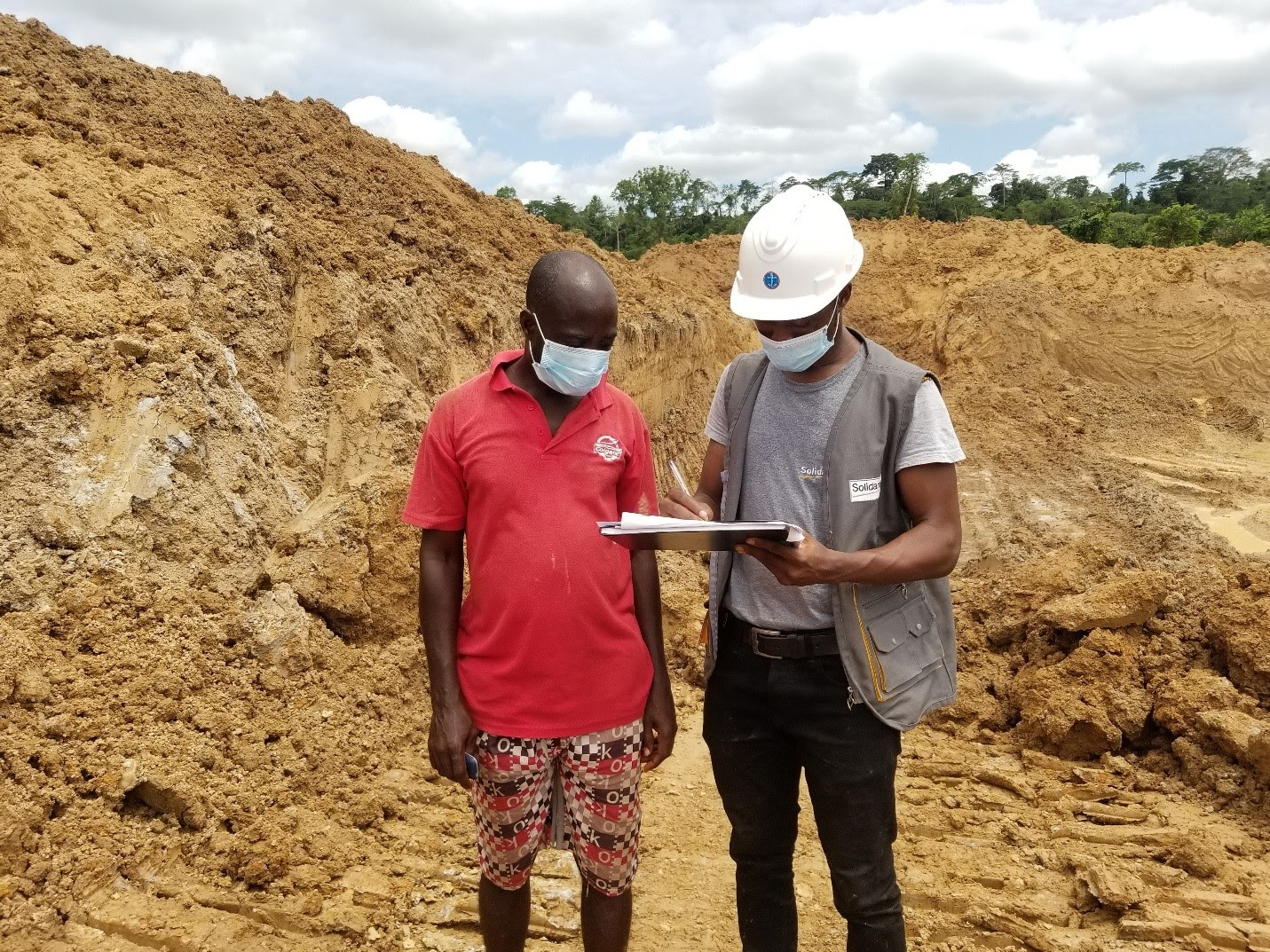 Photo courtesy of Solidaridad
Photo courtesy of Solidaridad
In such a large and growing space, there are certainly challenges to be addressed. Only about 20% of small scale mines are currently licensed. There is also some conflict between large scale mining companies and small scale miners. These issues are being addressed with the support of government institutions. Solidaridad is also working with miners to address environmental impacts as well as workers’ safety. Their Gold Program, which was started in 2012, has a multi-prong approach to working with mining operations. It touches on capacity building in responsible gold production, ensuring responsible practices in the mine operations, supporting development in mining communities, and policy interventions. Solidaridad’s work implements the CRAFT code, which conforms with the OECD Guidance for due diligence, and their goal is for the code to be adopted as the national standard in Ghana as well. With the support of partnering institutions, they are working to link small scale gold producers with the formal market.
The current, standard worldwide gold supply is made up of 20% artisanally or small-scale mined gold and 80% large-scale mined. Most of the time, the ASGM sources are not acknowledged by refiners and large gold buyers, which means ASGM is reaching the supply chain, but mostly from non-formalized or even illegal sources. ASGM operations often have a hard time entering the formal market which means that they may not be benefitting from the full potential of the ressource. An alternative to this market is offered by the certification schemes of Fairtrade and Fairmined. ASGM operations must meet requirements regarding environmental responsibilities, social responsibilities, and more. Compliance with these standards is shown through mining organization audits. There is a premium on the cost of this gold, which goes back to benefit the mining community. However, the uptake of mines participating in the certification schemes is still rather low. This may be in part due to the time and money that can be required as an investment up front in order to meet the standard. Additionally, most mines that meet the requirements do not have any guaranteed purchasers of the gold at the premium price, which may demotivate annual recertification.
Solidaridad is aiming for a third way to bring the responsible small-scale gold from Ghana to market. Carla compared it to the green energy system, which functions as a book and claim model of chain of custody. When we invest in green energy for our homes, the electricity that comes through our sockets may not always be just from the green energy source - it may be a mix of sources - but we are still contributing to the increase of the overall use of green energy. In a similar way, Solidaridad aims to enter the small-scale mined gold into the world market, but with checks and balances in place for the most vulnerable part of the supply chain - the beginning.
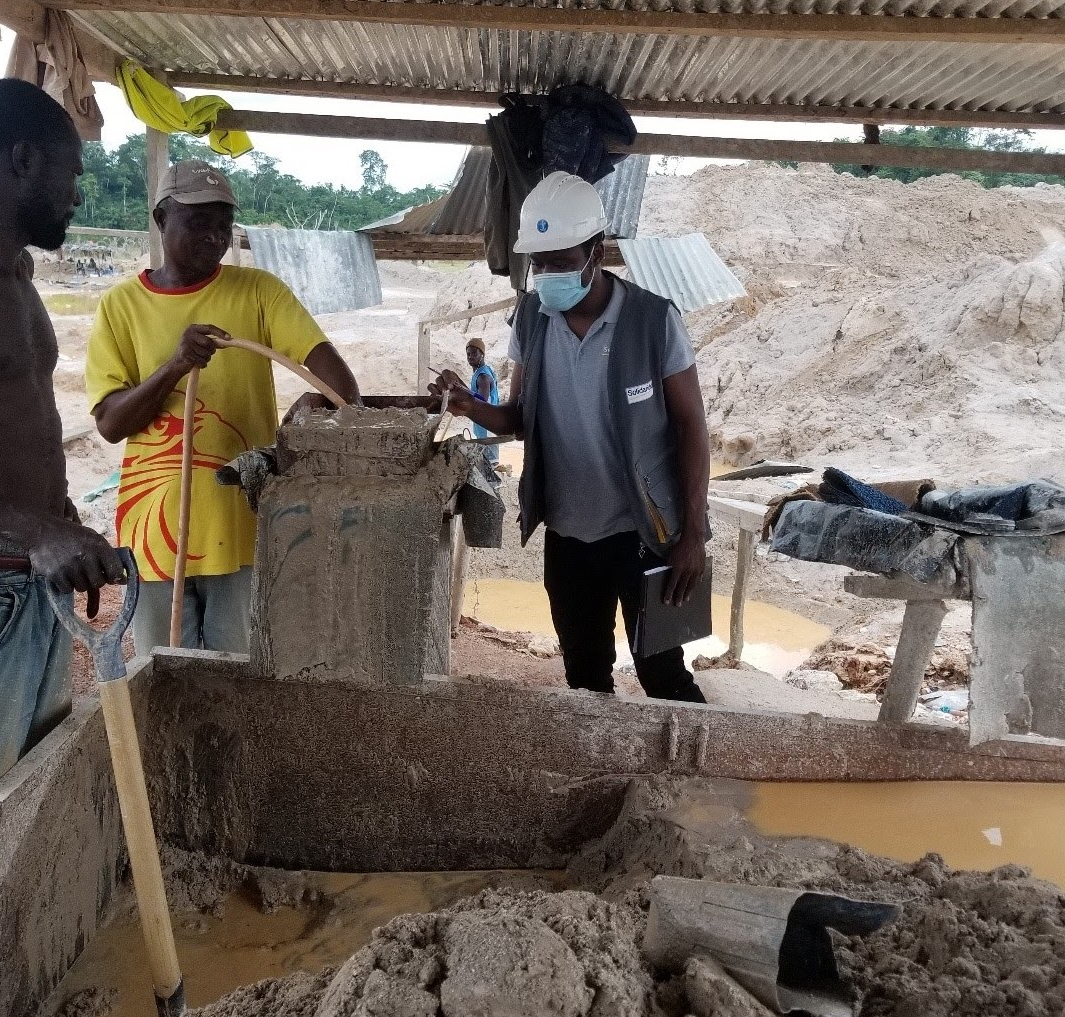
Photo courtesy of Solidaridad
Supporting the ASGM operations in making improvements would be possible through pre-financing for improvements to be made at a mine site or paying a premium of around 5%. The gold would be tracked from mine, to exporter, to refiner with the help of Minexx, which is a software offering digitized traceability. Through this work, Solidaridad is filling a niche by helping provide market accessibility and viability to mine sites for which certification is less feasible. These mine sites can implement the more progress-based CRAFT code, which allows them to make some initial changes in order to enter the formal market and then continue to improve while selling their gold to make some income. For example, a mine using mercury to process gold would be required to do so responsibly and safely in regards to workers and the environment, and would be able to sell in the formal market. They would also be required to have a plan in place to transition to mercury-free processing technologies in a given amount of time, so their improvements would continue. If participating in this “book and claim” model, jewelers would be able to make project based claims - that their added contribution is supporting improvements at specific mines - rather than product based claims.
Next up in this session, Andrea Jose Castro brought us another perspective for supporting responsible ASGM. As a Peruvian and a jeweler, she has been able to create some collaborative relationships with local miners. From the start of her jewelry business, sustainability has been at the forefront of her values. In 2019, she connected with the NGO Pure Earth, which had projects in place reforesting mining concessions in the Amazon Rainforest. Through this connection, Andrea met a miner named Don Pedro, who was the first miner in the area trained by Pure Earth in mercury-free processing methods. Together, Andrea and Don Pedro have created a link in the supply chain - directly between a miner and a jeweler - which does not usually exist. Through their continued relationship, they have each learned about the processes and techniques of their respective crafts and have been working in a mutually beneficial and collaborative manner.
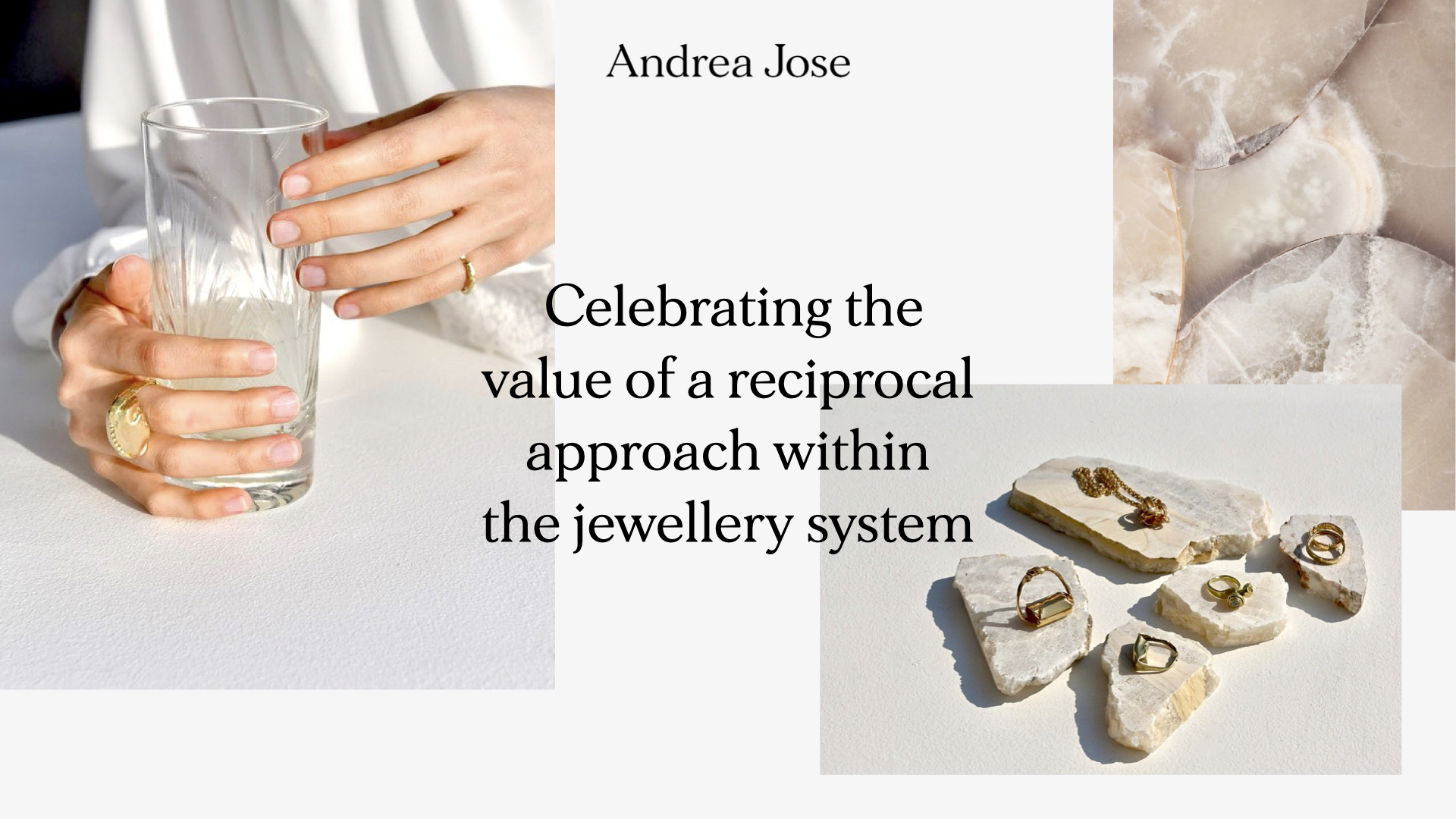
Photo courtesy of Andrea Jose
This is not to say that this journey has been an easy one or that it would be easily accessible to everyone. Andrea’s jewelry studio is able to test the purity as well as refine the gold in house, which makes it possible for them to source directly from the miners. Otherwise, the gold powder obtained from mercury free mining methods is hard to commercialize. Therefore, Andrea has been participating in training the miners to process this gold powder in their own workshops to be able to sell their gold in a more commercially viable form. This training was born out of her efforts to create opportunities for other jewelers to source this mercury-free gold directly from miners. After this training, the miners have now been able to successfully sell some of their gold to other companies in Lima as well.
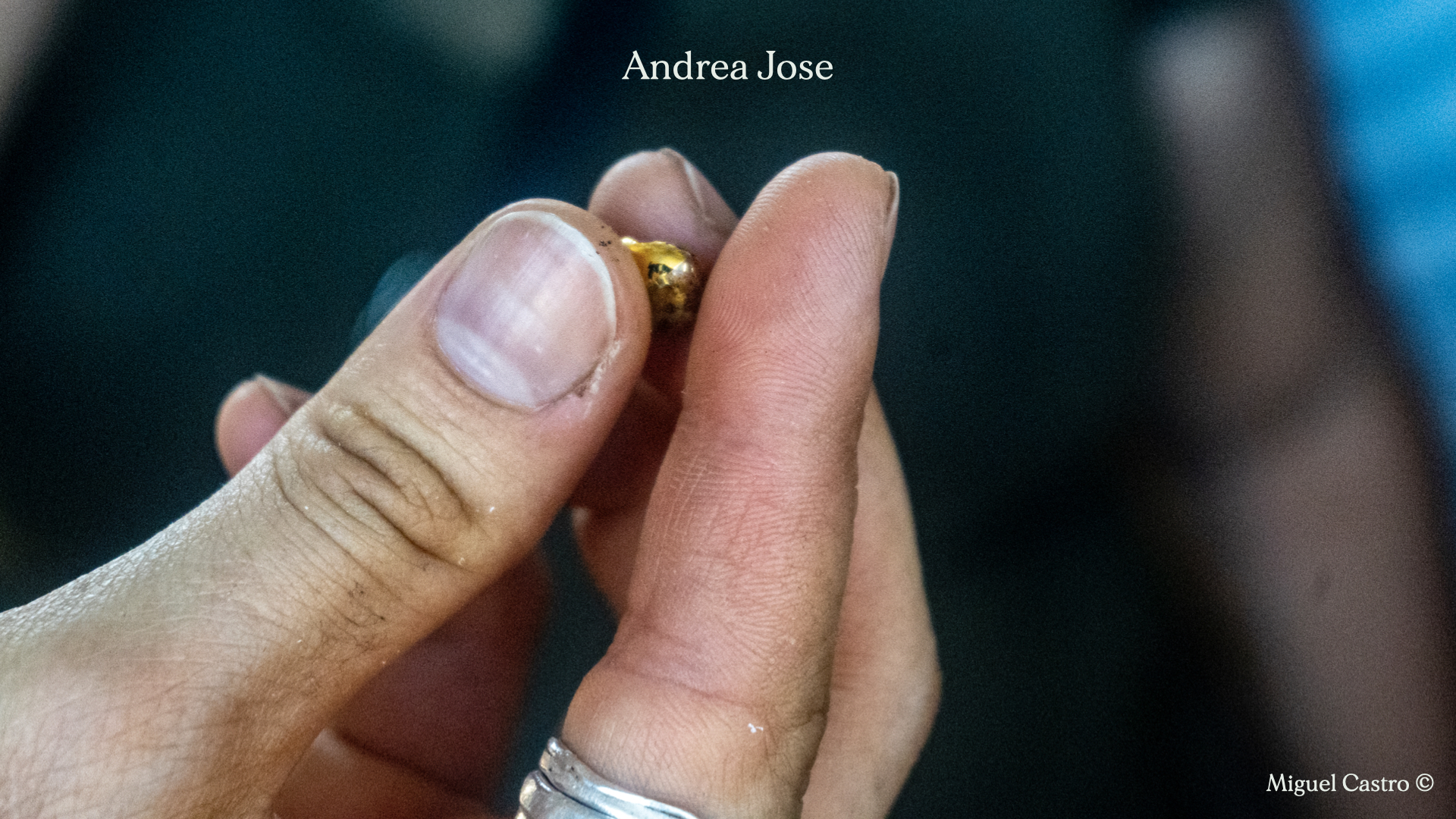
Photo courtesy of Andrea Jose
Andrea also mentioned the benefits of her company being a certified B Corporation. Because of the auditing process that being B Corp certified requires, Andrea is very clearly tracking and showing that close to 100% of their gold comes from responsible sources. Being able to measure the positive impact her jewelry business creates is a real benefit, something she can share with her customers and show how their purchase is making an impact. Her jewelry studio has also been able to share these responsible sourcing practices with other jewelers and help them to improve their own practices.
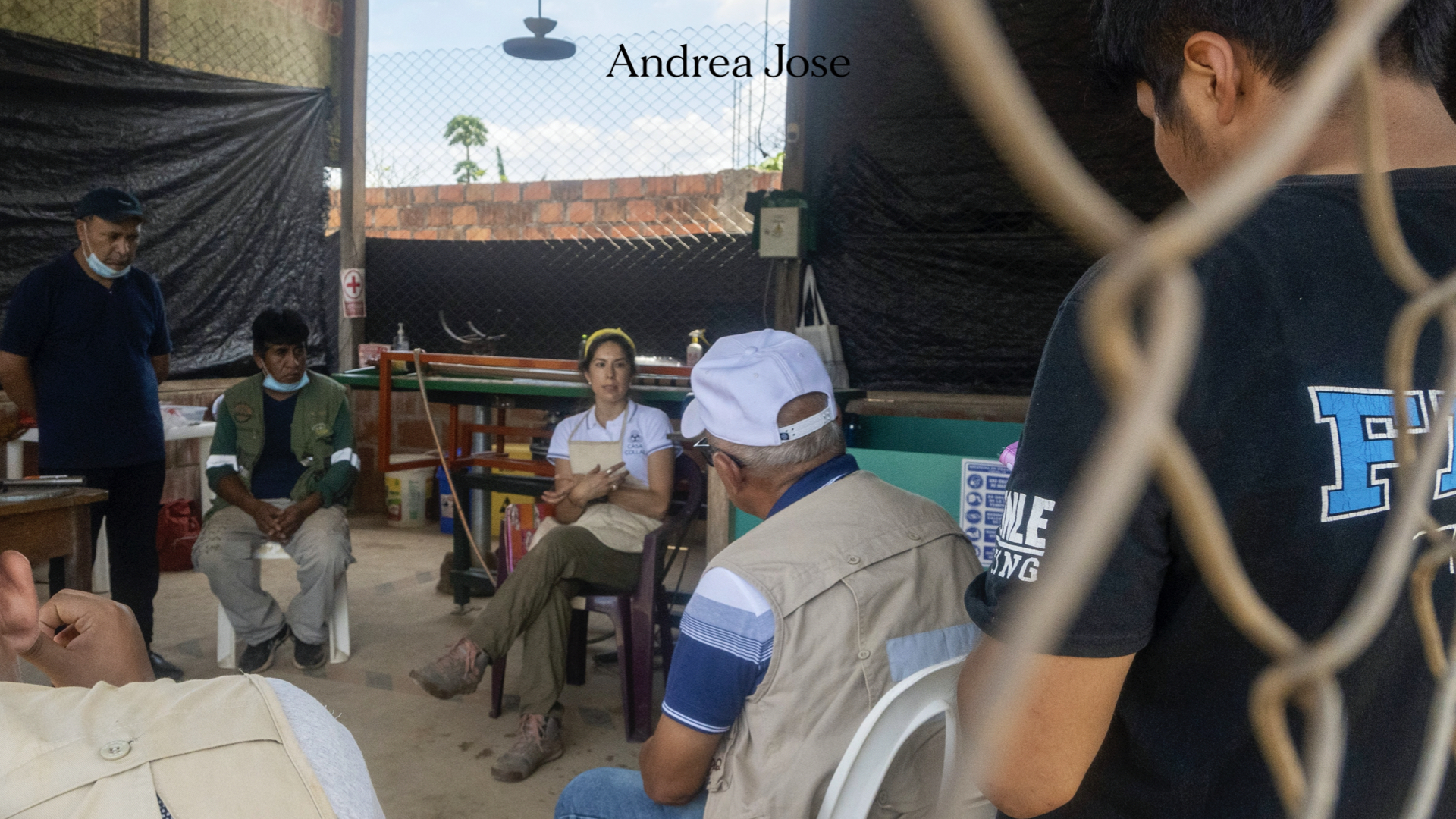
Photo courtesy of Andrea Jose
In hearing about ASGM from these two different perspectives, we can still note some similarities. Both Solidaridad and Andrea are working with artisanal and small scale mining communities for whom the existing standard isn’t a good fit. They are also both initiatives taking a look at how we can work with and support the benefit for mining communities, while still spurring on continual improvement.
We’re very grateful to all of our Living Room participants - in this session, in past sessions, and everyone who watches the recordings as well. Living Rooms will be on a break for the month of December and will return on Jan. 21, 2022. Mark your calendars - sessions will continue to be on the 3rd Friday of each month. We hope to bring you new and exciting topics as well as formats for the sessions. As always, any feedback is appreciated so feel free to use our contact form with any thoughts or suggestions. See y’all in 2022!
Join Our Community
Stay up-to-date with our latest content, industry news, and more.
Check your Inbox/Junk folder to confirm you want to receive emails from us. Don't worry, your information will not be shared.

